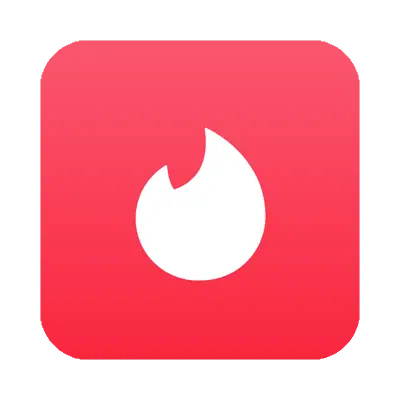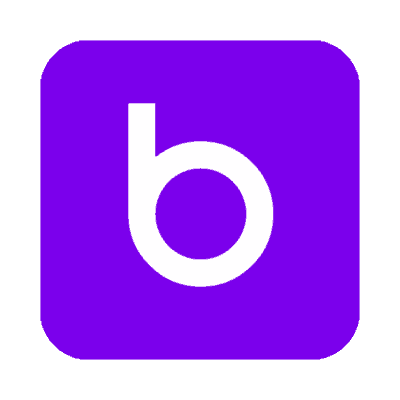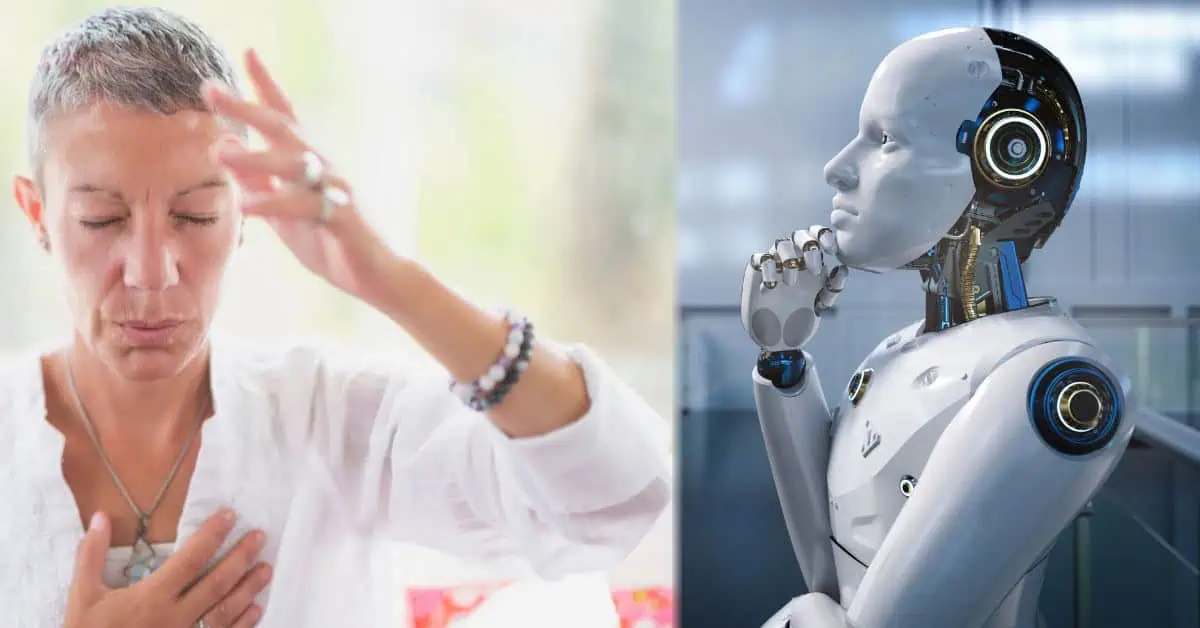Have you thought about the fact that your destined soulmate could be waiting for you on a dating app, just a quick swipe away? Or maybe they’re waiting for you to find them the old-fashioned way—IRL with the help of age-old human intuition? Chances are pretty good you are searching online because 40% of couples meet on dating apps, and some are relying heavily on AI (artificial intelligence) algorithms to connect them. But is technology really better at matchmaking than our own instincts?
The battle between all things becoming AI, especially dating app algorithms, and good ol’ human intuition is ramping up as artificial intelligence tech gets bigger and better. We thought we’d parse out the strengths and weaknesses of both, comparing the precise, data-driven matches produced by this technology with the unpredictable yet usually accurate decisions made by our own human instincts.
Can an algorithm really get and gauge the chemistry between two people, or is there something it just can’t match compared to the human touch in matchmaking? We aim to find out as we break down all of the details of this interesting quandary and see which approach could end up with you meeting your perfect match!
Understanding AI in Dating
Artificial Intelligence (AI) is a branch of computer science that creates systems capable of performing tasks that up until now have required human intelligence. This includes understanding natural language, recognizing patterns, and making decisions. In the arena of dating apps, AI is used to analyze massive amounts of data to help users find potential romantic matches. By learning from user preferences, behaviors, and interactions, AI’s goal is to make the dating process both more efficient and effective.
How AI Algorithms Work
A lot of popular dating apps are now integrating AI algorithms into their matchmaking—here’s how it works and how the magic happens:
- Data Collection: AI collects data from users’ profiles, including their interests, preferences, and behaviors. This data can encompass everything from the photos they upload and the bios they write to the types of profiles they swipe right on and the conversations they engage in.
- Compatibility Algorithms: These algorithms analyze the collected data to identify potential matches. They consider factors like shared interests, personality traits, and even linguistic styles in messages. The goal is to pair users who are likely to be compatible based on these criteria.
- User Behavior Analysis: AI continuously monitors and learns from user interactions within the app. It adapts its recommendations based on what users like or dislike, refining its matchmaking process over time. This powerful learning process helps improve the accuracy of potential matches.
Examples of AI in Popular Dating Apps
Here are the popular and niche dating apps that are currently incorporating and using AI to improve their matchmaking for singles:

Tinder: Known for its simple swiping interface, Tinder uses AI to improve its matching algorithm. It considers user preferences, swiping habits, and even the time of day to suggest potential matches. Tinder’s “Smart Photos” feature, for example, uses AI to determine which profile pictures are most likely to receive swipes.

Hinge: Hinge brands itself as an app “designed to be deleted” by focusing on meaningful connections. It uses a “We Met” feature, where users can provide feedback on their dates. This feedback is fed into the app’s AI to improve future match recommendations. Hinge’s “Most Compatible” feature uses machine learning to suggest profiles that are statistically more likely to result in successful matches.

Bumble: Bumble employs AI to verify a safe and respectful environment. Its AI-driven features include photo verification to prevent catfishing and the use of AI to detect and block inappropriate content. For matchmaking, Bumble uses AI to analyze user behavior and preferences, offering tailored match suggestions.

OkCupid: OkCupid has long been known for its detailed questionnaires and data-driven approach. The app uses AI to analyze users’ responses to questions, their interests, and their behavior on the app. It then calculates a compatibility percentage with other users, aiming to match people with similar values and interests.

eHarmony: eHarmony uses a sophisticated compatibility matching system that incorporates AI to analyze users’ personality traits, preferences, and responses to detailed questionnaires. The AI algorithm looks for deep compatibility factors to suggest long-term relationship prospects.

Coffee Meets Bagel (CMB): CMB leverages AI to curate a limited number of high-quality matches every day called “Bagels.” The AI learns from users’ preferences and behaviors, continually refining its match suggestions to provide more compatible and interesting matches over time.

Badoo: Badoo uses AI for various features, including detecting fake profiles and inappropriate content. Its AI-driven matchmaking algorithm considers user behavior, preferences, and interactions to suggest potential matches, aiming to improve the overall user experience.

Grindr: Primarily used by the LGBTQ+ community, Grindr uses AI to boost its matching algorithm. It takes into account user preferences, location, and interaction patterns to suggest potential matches, making the dating experience more tailored and relevant.

Elite Singles: Elite Singles uses AI to match highly educated and professional singles. The app analyzes users’ demographics, preferences, and behaviors to provide high-quality match suggestions. The AI system continuously learns and adapts to improve the accuracy of its matchmaking over time.

Keeper: Keeper uses AI to focus on long-term compatibility and meaningful connections. It analyzes user preferences, communication styles, and behavior patterns to suggest highly compatible matches. Keeper’s AI is designed to learn from user interactions, continually improving the quality of its match suggestions.
These examples illustrate just how AI is being integrated into dating apps to create much more personalized and better matchmaking for singles. By continuously learning from user data, AI helps these platforms evolve and improve, with the ultimate goal of bringing people closer to finding their ideal match.
The Role of Human Intuition in Dating
When it comes to choosing a romantic partner, a lot of the time, our decisions are based on more than just logic or data. This is where human intuition steps in, steering us through the dating scene with a sense that we can’t quite explain but trust—our gut instincts.
Human intuition refers to the ability to understand or know something instinctively, without the need for conscious reasoning. It’s that gut feeling you get about someone, and it’s based on subtle cues and personal experiences. In dating, intuition helps us size up any potential partners quickly, guiding our choices based on non-verbal signals, emotional responses, and subconscious pattern recognition.
Advantages of Human Intuition
Despite the rise of technology in the dating world, there’s still something unparalleled about the human touch. Our intuition gives us several advantages that data-driven algorithms simply can’t touch in terms of tapping into our emotional intelligence, gut feelings, and personal experiences.
- Emotional Intelligence: Intuition allows us to read emotions and empathize with others. This can help us gauge compatibility and build a deeper connection with potential partners.
- Gut Feelings: Sometimes, we just “know” when someone is right or wrong for us. These gut feelings can guide us toward individuals who feel like a natural fit, even if we can’t pinpoint why.
- Personal Experiences: Our past experiences shape our intuition, helping us recognize red flags or positive traits based on what we’ve learned in previous relationships. This experiential knowledge is pretty invaluable when it comes to dating.
Limitations of Human Intuition
But relying solely on intuition isn’t without its negative aspects; yes, our gut feelings can be incredibly useful. They are also prone to errors and biases, so knowing the limitations of human intuition is also important to making balanced and smart decisions in our romantic lives!
- Biases: Our intuition can be influenced by unconscious biases, such as stereotypes or past traumas, which may lead us to make unfair or inaccurate judgments about others.
- Over-Reliance on First Impressions: While first impressions can be powerful, they are not always accurate. We might dismiss someone too quickly or be overly impressed by superficial traits, missing out on deeper compatibility.
- Emotional Overload: Strong emotions can cloud our judgment, leading us to make decisions based on passion rather than reason. This can result in choices that are not in our best long-term interest.
- Confirmation Bias: We might look for info that confirms our preconceptions while ignoring evidence to the contrary. This can lead to reinforcing incorrect assumptions about a potential romantic partner.
Human intuition adds to the dating experience, bringing with it emotional depth and personal observations that algorithms cannot and will not ever be able to replicate. But it does have some flaws!
Comparing AI and Human Intuition
When it comes to finding love, how do AI and human intuition stack up against each other? Studies show that AI can be incredibly effective at matching people based on compatibility metrics. In 2021, a study by Stanford University found that relationships that began through dating apps were more likely to result in marriages than those started offline. This suggests that AI’s data-driven approach can successfully identify compatible partners.
Not so fast, AI—human intuition also has a solid track record, particularly in the areas of chemistry and emotional connection. While AI is great for analyzing past behaviors and preferences, it misses the nuances that humans pick up on when meeting someone in person.
Emotional and Psychological Factors
AI and human intuition handle the emotional and psychological aspects of relationships in wildly different ways. AI can analyze communication patterns to gauge emotional compatibility, but it lacks the ability to understand human emotions in any real way.
For example, AI might notice that two people like the same things or share common interests, but it can’t sense the chemistry that could happen in a face-to-face interaction. Human intuition, on the other hand, obviously wins in this area. It allows people to pick up on body language, tone of voice, and other subtle cues that indicate emotional connection. This instinctive understanding is pretty important to building a strong, long-term relationship.
Personalization and Adaptability
One of AI’s stellar strengths is its ability to tailor matches based on a huge amount of data. AI can continuously refine its recommendations by analyzing user behavior, preferences, and feedback, providing increasingly accurate matches over time. If you consistently swipe right or “like” dating profiles with certain traits, the algorithm will prioritize those traits in all future matches. Human intuition, while less systematic, is highly adaptable. People adjust their preferences based on their experiences and evolving understanding of what they want in a partner. This adaptability allows for a more flexible and nuanced approach to finding a match, though it might be a little less consistent than AI’s methodical analysis.
Ultimately, the choice between AI and human intuition in dating comes down to a balance of precision and personal touch.
- AI pros are efficiency and data-driven accuracy
- While human intuition has emotional depth and instinctive understanding
By combining both strengths, we could increase our chances of finding someone special who is the right fit for us.
Case Studies and Real-Life Examples
Couples have fallen in love both through AI matchmaking and by trusting their own instincts, so look below for a few examples of real-life success stories and studies about both!
| AI Matchmaking Success | Human Intuition Success |
|---|---|
One notable example is the dating app Keeper, which leverages AI to match singles seeking long-term relationships. Since its launch, Keeper has demonstrated a high success rate, with 66% of matches resulting in long-term relationships. This success is attributed to its use of extensive questionnaires and AI algorithms that analyze compatibility on multiple levels, from personality traits to political views. | On the other side of the love fence, a lot of couples, especially those who met before the advent of dating apps, attribute their successful relationships to human intuition. But since we are talking about dating apps, take the example of Amanda and Luke, who met on Bumble and initially connected over their common passion for traveling. Despite living on opposite coasts, their strong gut feeling about each other led them to keep up a long-distance relationship before eventually getting married! |
Expert Opinions
Insights from relationship experts, psychologists, and tech specialists can give us a better understanding of the efficacy of AI and human intuition in dating.
| AI’s Strengths and Weaknesses | Human Intuition’s Role |
|---|---|
AI excels in creating matches based on compatibility metrics and reducing “choice overload,” which can streamline the dating process by presenting fewer but higher-quality matches. But experts caution that AI lacks the human nuance necessary to understand chemistry and emotional connection fully, and there are concerns about privacy and the creation of “echo chambers” that limit exposure to diverse perspectives. | Relationship experts highlight that human intuition is invaluable for its ability to read emotional cues and understand the deeper, often intangible aspects of connection. Yet our intuition can also be biased and influenced by personal experiences, which could mean both positive and negative outcomes in the dating process. |
Personalization and Adaptability
AI and human intuition each have distinct approaches to personalization and adaptability in matchmaking, like the following:
| AI’s Personalization | Human Adaptability |
|---|---|
AI can tailor matches based on a wealth of data, learning from user behavior and preferences over time to refine its recommendations. Apps like Keeper and Hinge use detailed questionnaires and continuous feedback loops to improve match accuracy, making the process efficient and targeted. | Humans adjust their preferences based on experiences, which allows for a more flexible and nuanced approach to finding a match. This adaptability can lead to more spontaneous and emotionally driven connections, though it may also result in inconsistencies compared to AI’s systematic methods. |
By merging the strengths of AI’s data-driven precision with the emotional depth of human intuition, we can make modern dating a little bit easier and less stressful. Whether through a carefully curated AI algorithm or a serendipitous meeting, both approaches have their own standing and usefulness in the search for love.
Ethical and Social Implications
As AI continues to permeate the world of online dating, it brings with it a host of ethical and social implications that warrant careful consideration. While AI can undoubtedly improve the efficacy of matchmaking, it also raises some pretty weighty concerns about privacy and the overall impact on human relationships.
Privacy Concerns
The use of AI in dating apps involves collecting and analyzing massive amounts of personal data. This data includes not just basic profile info but also intricate details about users’ preferences, behaviors, and interactions. The primary ethical concern here is data privacy—users can unknowingly grant extensive access to their personal information, which can be used in ways they do not fully understand or would consent to if they did.
- Data Security: The security of the data collected by dating apps is a major concern. With numerous high-profile data breaches in recent years, users are increasingly worried about their personal information being exposed or misused. For example, the Ashley Madison hack in 2015 compromised the personal details of millions of users, leading to severe personal and financial repercussions for many individuals.
- Informed Consent: Another issue is the extent to which users know and agree to the data collection practices. Terms of service agreements are often lengthy and complex, making it unlikely that users fully understand what they are consenting to. This lack of transparency can undermine trust in the platforms and raise ethical questions about the fairness of these practices.
- Commercial Use of Data: Dating apps can monetize the data they collect by selling it to third parties or using it for targeted advertising. This commercial exploitation of personal information further complicates the ethical landscape, as users might not be comfortable with their intimate data being used for profit.
Impact on Human Relationships
Integrating AI into the dating world also has larger social implications, particularly regarding how people form and sustain relationships.
- Changes in Relationship Formation: AI-driven matchmaking can influence the dynamics of how relationships are formed. AI can create a more homogenized dating experience by prioritizing certain traits and behaviors. This might lead to a narrowing of potential matches, where users are repeatedly exposed to individuals with similar backgrounds and preferences, potentially limiting the diversity of their social interactions.
- Over-Reliance on Technology: There is a risk that people may become overly reliant on AI to make decisions about their personal lives. This reliance can diminish the importance of human intuition and the natural process of getting to know someone organically. It can also lead to a transactional view of relationships, where potential partners are evaluated based on algorithmic recommendations rather than personal chemistry and connection.
- Emotional Impact: The use of AI in dating can also have emotional implications—the rejection experienced through algorithmic matching can feel depersonalized and mechanical, potentially leading to feelings of inadequacy or frustration. Conversely, success stories facilitated by AI can reinforce the idea that technology is a reliable matchmaker, which may not always align with human relationships’ complexities.
- Shifts in Social Norms: As AI becomes more ingrained in the dating app world, social norms around dating and relationships are likely to change, too. Traditional courtship practices could evolve, and new etiquettes might emerge that reflect the digital nature of modern romance. This transformation could affect how people perceive and engage in online and offline relationships.
Ethical Considerations
We also need to address the ethical and social implications, and this calls for a versatile approach which requires the following:
- Stronger Data Protections: Implementing strong data protection measures is crucial to safeguard users’ privacy. This includes encryption, regular security audits, and transparent data management practices. Legislators and regulators need to enforce stricter guidelines to ensure that dating apps adhere to high standards of data security.
- Transparency and Consent: Improving transparency around data collection and usage is of the utmost importance! Dating apps should simplify their terms of service and clearly communicate how user data will be used. Giving users more control over their data, such as opt-in features for data sharing, can go a long way in building trust and empowering users to make informed choices.
- Balancing Technology and Human Interaction: Encouraging a balanced approach that integrates both AI and human intuition can help mitigate some of the negative social impacts. Dating apps can offer features that promote real-life interactions and emphasize the importance of personal connection and emotional intelligence.
- Ethical AI Development: Developers and tech companies should prioritize ethical considerations in AI development. This means addressing biases in algorithms, diversity in matchmaking, and focusing on the overall well-being of users rather than purely commercial interests.
AI definitely has the potential to revolutionize the dating landscape, but it comes with a big caveat—it is imperative to address the ethical and social implications associated with its use. By prioritizing privacy, transparency, and a balanced approach to technology and human interaction, it could be a more equitable and emotionally fulfilling dating experience for everyone who partakes.
AI or Human Intuition? Take Your Pick
In our extensive exploration of AI versus human intuition in finding the perfect match, we’ve seen both the strengths and limitations of both approaches.
AI wins hands-down in the data-driven accuracy department for how efficiently it matches users based on extensive compatibility metrics and behavioral analysis. Success stories from apps like Keeper and Bumble show the potential for AI to create meaningful connections.
On the other side of the coin, human intuition comes out ahead for being actually human! We can use our gut feelings, personal experiences, and emotional intelligence to handle romantic relationships. Both AI and human intuition are not without their drawbacks—AI lacks a nuanced understanding of human emotions, while human intuition can be biased and inconsistent.
Here’s a quick refresher on what we covered:
- Prevalence of Online Dating: 40% of couples meet through dating apps, highlighting the importance of AI in modern matchmaking.
- How AI Works in Dating Apps: AI gathers comprehensive user data, including interests and behaviors; Compatibility Algorithms: Analyzes data to find potential matches based on compatibility factors; User Behavior Analysis: Continuously learns and refines match suggestions from user interactions.
- Human Intuition in Dating: Relies on subtle cues and personal experiences to make decisions about potential partners.
- Advantages of Human Intuition: Emotional intelligence, gut feelings, and personal experiences aid in finding matches.
- Limitations of Human Intuition: Biases, over-reliance on first impressions, emotional overload, and confirmation bias can affect judgment.
- Effectiveness of AI vs. Human Intuition: AI excels in data-driven compatibility, while human intuition is crucial for chemistry and emotional connection.
- Ethical and Social Implications: Privacy concerns with data security and informed consent; Impact on relationship formation and social norms.
- Recommendations: Implement stronger data protections; Improve transparency and consent in data usage; Balance technology with human interaction; Develop ethical AI practices.
Both AI and human intuition are both worthy of their places in the dating world. AI provides a systematic, methodical way of sorting through potential matches and can highlight compatibility that might not be immediately apparent. But it’s the human aspect that actually gets the complexities of attraction and connection. A reasonable approach, leveraging the precision of AI alongside the emotional aspects of human intuition, means singles can get the best of both worlds. This winning combo can supercharge our chances of finding an amazing romantic relationship by merging objective data with personal, emotional clarity.
Think about your own dating experiences and how incorporating both AI-powered tools and your intuition could benefit your love life! You can test out one of the many AI-driven dating apps and take advantage of their sophisticated algorithms, but don’t discount the value of your gut feelings and personal judgments—being open to both can increase your chances of finding your other half.
Additional Resources
For those interested in looking a little further into this topic or learning more about AI, we collected some great resources to help you do just that!
